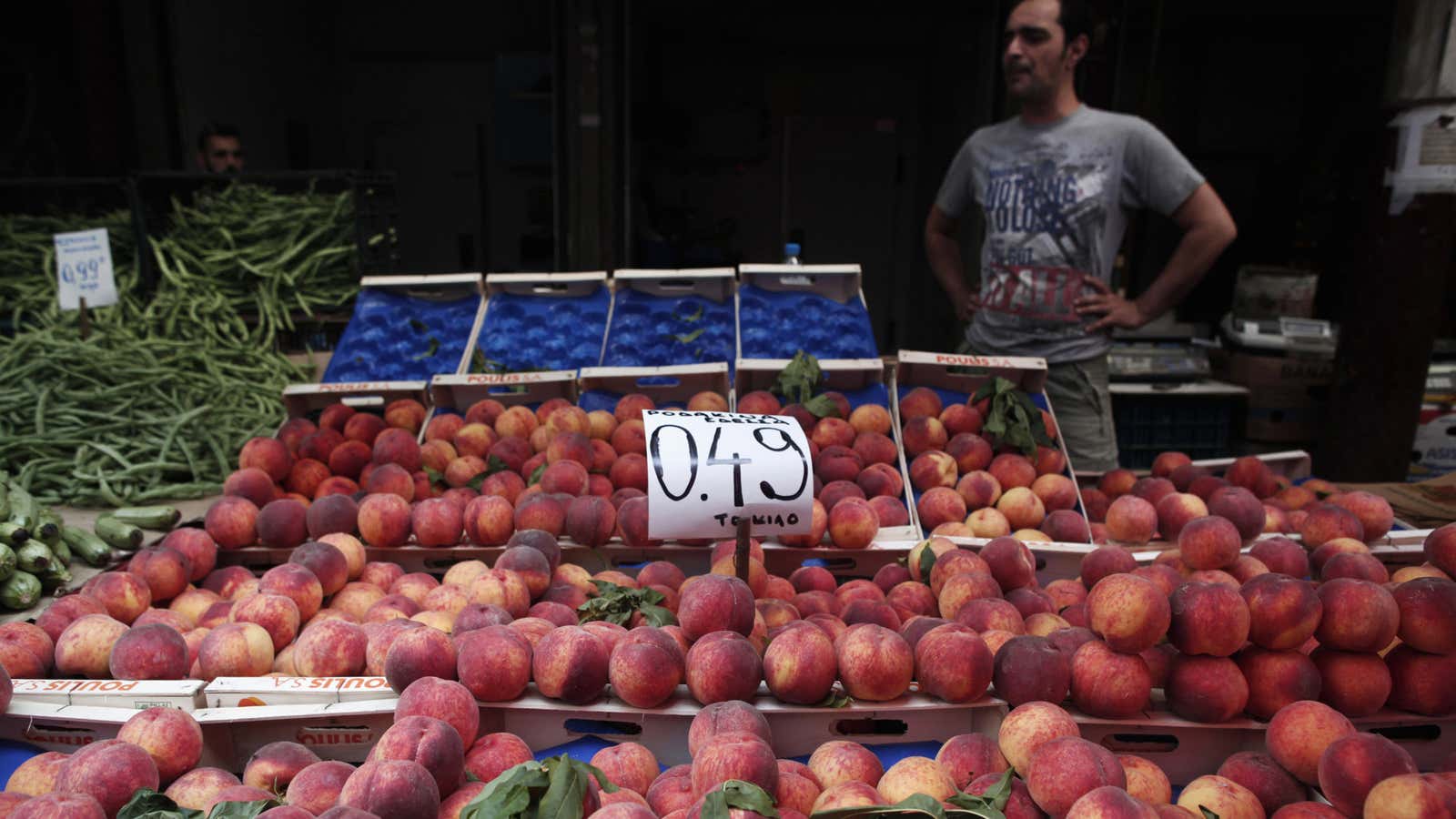From Polish apples to Belgian pears, Italian peaches, and Spanish nectarines, the European Union shipped $1.7 billion worth of fruit to Russia last year. Russia’s embargo on food imports from the EU means that trucks laden with fruit are now being turned away at the border, much to farmers’ chagrin.
In a sign of things to come, the EU announced emergency measures to prop up peach and nectarine producers yesterday. The European Commission will dip into its €400 million ($534 million) agriculture crisis reserve to aid these producers, paying them to boost promotional activity—A nectarine a day keeps the doctor away, perhaps—as well as to take crops off the market to support prices. This is a “signal of intent” that the EU won’t sit back and simply take the hit from Russian sanctions, according to agriculture commissioner Dacian Ciolos.
There is no official estimate of the cost of the aid, but a European Commission spokesperson tells Quartz that industry sources put the support “in the region of €20-30 million.” EU agriculture ministers will cut their vacations short to meet later this week, with similar aid packages for other products on the agenda, so the final bill could be much higher.
Millions of peaches, peaches for free
The bulk of Europe’s peaches and nectarines come from France, Greece, Italy, and Spain, hardly economies that can afford any unexpected shocks at the moment. Some $240 million worth of the fruit was sold to Russia last year, around 13% of the EU’s total peach and nectarine exports.
Even before the Russian embargo, peach and nectarine farmers were appealing for official aid, as a bumper crop and fickle demand combined to cut market prices by up to 50% in June (pdf). A “peach war” broke out between French and Spanish producers last month, with the former accusing the latter of dumping the fruit at unfairly low prices.
The EU will now pay peach and nectarine producers to take up to 10% of their fruit off the market—under the usual rules, compensation for “market withdrawals” during a crisis are capped at 5% of production. The producers are paid full price for their crops if they donate them, and 50% of the market rate if they throw them away.
That means that charities, schools, hospitals, elderly care centers, and prisons in Europe are about to become unexpected beneficiaries of the Russian produce ban. They have Vladimir Putin to thank for the millions of free peaches and nectarines about to come their way.




